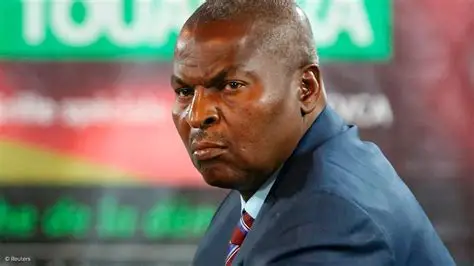The Central African Republic’s constitutional court has approved President Faustin Archange Touadera to contest next month’s presidential election, dismissing a petition that challenged his eligibility on lineage grounds. The decision clears the way for the long-serving leader to seek another term in the December 28 poll.
The court also validated the candidacies of opposition figure Anicet Georges Dologuélé and five additional contenders, setting the stage for a highly scrutinised race in a country still navigating political uncertainty and lingering insecurity.
Touadera, first elected in 2016 and re-elected in 2021, remains one of Moscow’s closest partners on the continent. The Central African Republic was among the earliest nations to host the Wagner mercenary group, whose fighters have guarded the presidency, battled armed groups, and secured mining zones in exchange for access to mineral resources.
Tensions with Russia have grown in recent months over the future of that security arrangement. In August, government and military officials revealed that Moscow asked Bangui to replace Wagner with the state-run Africa Corps and begin issuing direct payments for continued support. Authorities have resisted, arguing that Wagner’s operations are more effective and that mineral-for-service exchanges better suit the country’s financial limitations.
Wagner’s influence has been pivotal in recent political developments, including support for a 2023 constitutional referendum that could allow Touadera to extend his hold on power. The group is also credited with preventing rebels from advancing on Bangui in 2021.
The country has endured a decade of conflict since predominantly Muslim rebel factions seized power in 2013, forcing the government into exile. Although a peace accord was signed in 2019, several armed groups later abandoned the deal, keeping large parts of the nation unstable.
The court’s approval of Touadera’s candidacy came as the United Nations Security Council renewed the mandate of its peacekeeping mission in the Central African Republic for another year, underscoring the international concern over the country’s fragile security landscape.


